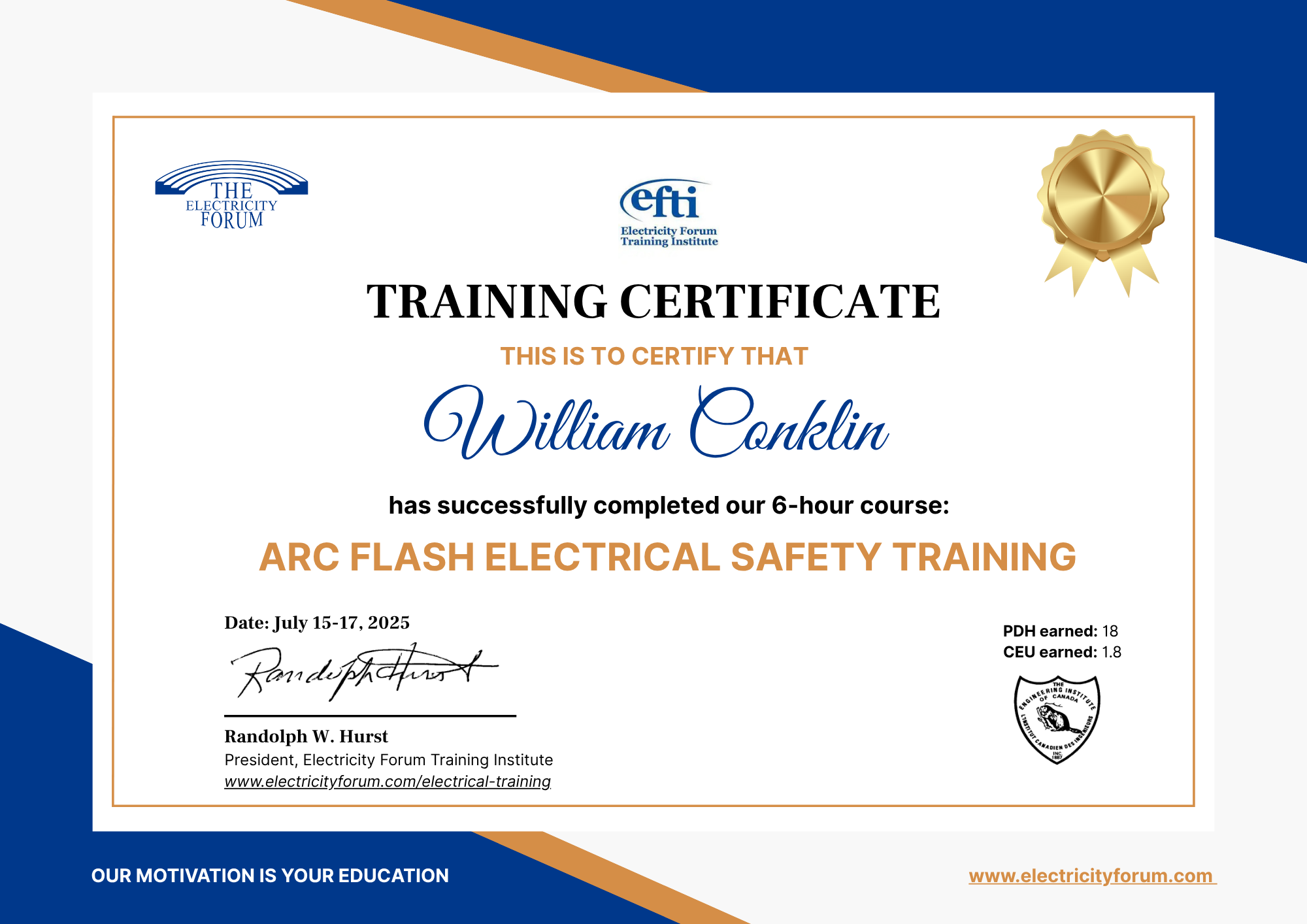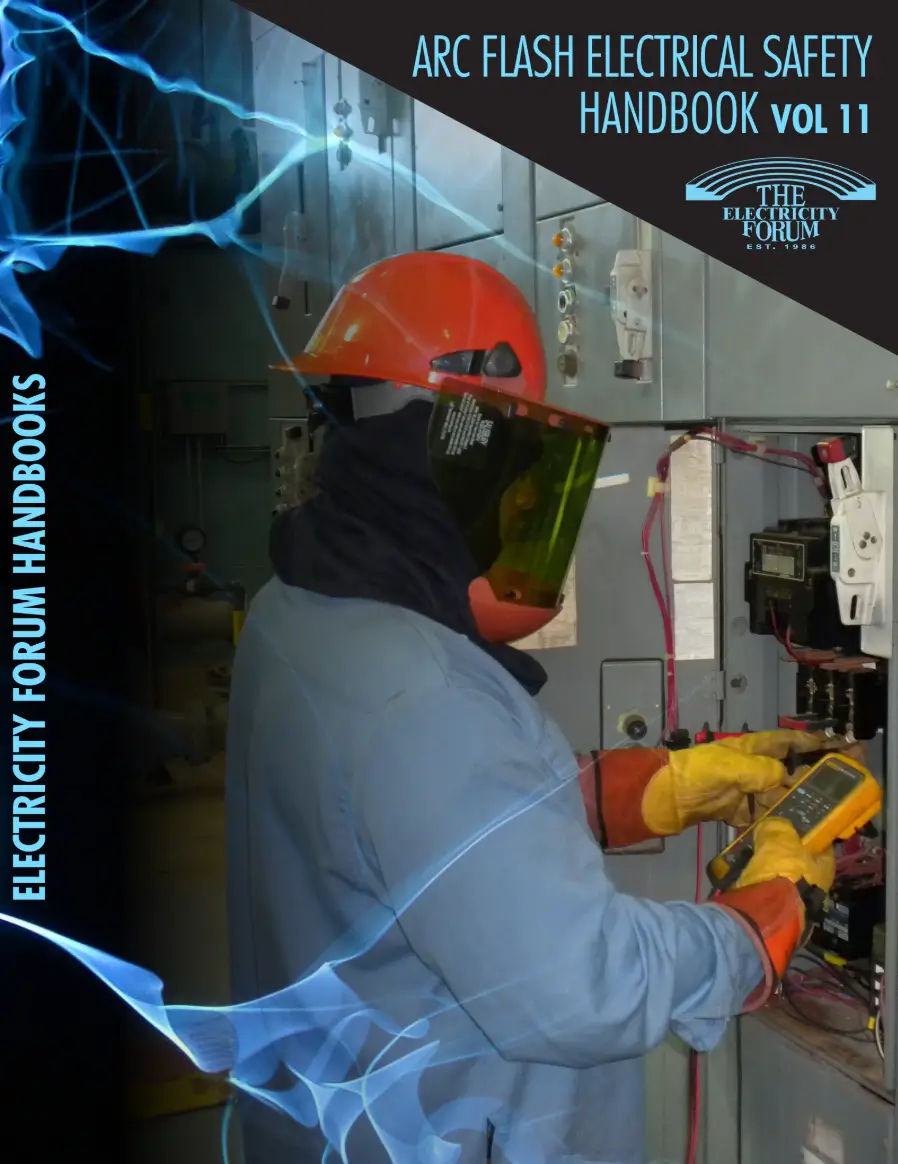Hands-On Cable Splicing and Terminating Training
Instructor:
John Robin, Cable Splicing Specialist, The Electricity Forum
COURSE OBJECTIVES
- Overview of Tape Products
- Electrical Tape Utilization
- Overview of Low Voltage Splicing
- How to perform Low Voltage Splicing
- Overview of High Voltage Terminations
- How to perform a High Voltage Termination
- Overview of High Voltage Splicing
- How to perform a High Voltage Tape Splice
- Overview of High Voltage Premolded Splicing
- How to perform a High Voltage Premolded Splice
Fundamentals of High Voltage Termination
- High Voltage Functional elements
- Cable components
- Electrical characteristics
- High Voltage Termination Techniques
- Termination Classifications
- Class 1 Terminations
- Class 2 Terminations
- Class 3 Terminations
- Cable Preparation
- Instructors demonstration of a Class 1 Termination procedures
- Practical application
- Jobsheet #3 – Perform a Class 1 Termination
Fundamentals of High Voltage Splicing
- High Voltage Tape splicing Techniques
- Cable components
- Electrical characteristics
- Instructors demonstration of cable preparation
- Practical application
- Jobsheet #4 – Perform a 15KV mono conductor cable tape splice
- High voltage Premolded splicing Techniques
- Comparative analysis of tape splice vs. premolded splicing
- Cable Components
- Overview of cable splicing
- Practical Application
- Jobsheet #5 – Perform a 15KV mono conductor premolded splice
Cable Construction
- Describe how voltage stress can cause a cable to fail.
- Identify the main components of a high-voltage cable.
- Describe the function of each component of a high-voltage cable.
Principles of Cable Termination
- Explain how a high voltage termination provides voltage stress control
- Explain how a high voltage termination provides protection against tracking.
- Explain how a high voltage termination provides a seal to the environment
15-KV Solid Dielectric Cable Preparation – Hot Shrink
- Identify the components of a high-voltage solid dielectric cable.
- Describe or demonstrate how to prepare a single-conductor dielectric cable for a termination.
15-KV Solid Dielectric Cable Termination – Hot Shrink
- Describe or demonstrate how to apply the kit used to make a termination on a single-conductor 15-KV solid dielectric cable.
- Describe or demonstrate how to install the insulator hoods and connector on a single-conductor 15-KV solid dielectric cable.
15-KV Solid Dielectric Cable Preparation – Cold Shrink
- escribe or demonstrate how to prepare a single-conductor dielectric cable for a termination.
15-KV Solid Dielectric Cable Termination – Cold Shrink
- Describe or demonstrate how to apply the kit used to make a termination on a single-conductor 15-KV solid dielectric cable.
15-KV Solid Dielectric Cable Splice Preparation – Hot Shrink
- Describe or demonstrate how to prepare a single-conductor dielectric cable for a splice.
15-KV Solid Dielectric Cable Splice Preparation – Cold Shrink
- Describe or demonstrate how to prepare a single-conductor dielectric cable for a splice.
At least 4 hours of the class is dedicated to “hands on” training; preparing cable, applying hot and cold splice kits. NOTE: Splice kits will be used, but not heated or shrunk to cable. This is done to reduce the price of the course for all. Examples of completed splices will be available for viewing. After all: 90 percent of the work is cable preparation!
NOTE: Students will bring measuring tape, utility knife, needle nose pliers, eye protection & work gloves.
Questions and Answers
COURSE TIMETABLE:
Both days:
Start: 8:00 a.m.
Coffee Break: 10:00 a.m.
Lunch: 12:00 noon
Restart: 1:15 p.m.
Finish: 4:30 p.m.

















